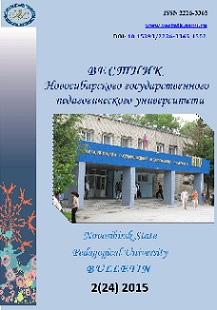ПРАГМАТИЧЕСКИЕ АСПЕКТЫ ПЕРЕВОДА АПЕЛЛЯТИВНОЙ И ОНОМАСТИЧЕСКОЙ ЛЕКСИКИ
PRAGMATIC DIFFICULTIES IN TRANSLATION OF COMMON AND PROPER NAMES
Author(s): Alexey Alexandrovich ChernobrovSubject(s): Language and Literature Studies
Published by: Новосибирский государственный педагогический университет
Keywords: Language and culture; translation equivalence; proper and common names; pragmatics
Summary/Abstract: Pragmatic purposes sometimes require serious changes in translation. While translating it is necessary to go beyond the limits of purely linguistic units. Surely, simple transferring of the realities of another culture to the translated text is not enough to completely preserve all the in-formation contained in the text. Therefore translators use special devices, on condition the cul-ture specific unit is known and understood correctly by the translator, which is not guaranteed. Having analysed extensive material, we have come to a conclusion, that there might be five ways of transferring English culture specific units into Russian: 1) рreserving the culture specif-ic units in the text with the subsequent commentary; 2) “descriptive” translation without preser-vation of culture specific units; 3) preservation of culture specific units in the text with addition of explaining words; 4) transformation, i.e. replacement of one culture specific unit with more familiar ones; 5) ignoring of culture specific units in the text. Translators prefer to use descrip-tive translation, mostly ignoring all the other ways of translating the “untranslatable” culture specific units. But, in our opinion, in most cases the first way i.e. a post-textual commentary, is preferable. Only the commentary permits to completely reveal all the implications and ambigui-ties hidden behind the background words.
Journal: Вестник Новосибирского государственного педагогического университета
- Issue Year: 2015
- Issue No: 2
- Page Range: 144-153
- Page Count: 10
- Language: Russian

